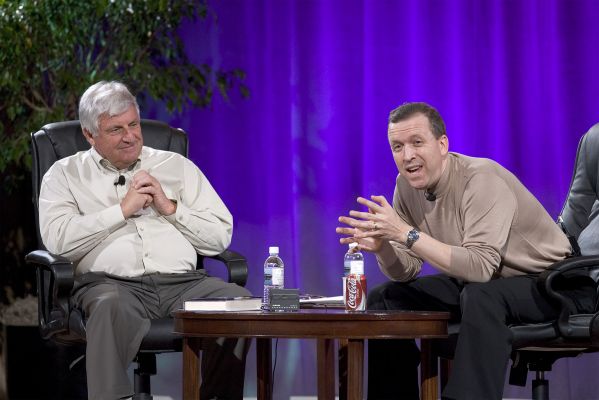Dateline: SWA flights from Indy via Midway to Philly, 9 October 2005
Did what I could with the kids in the time I had. Saturday was big end-of-season city meet on cross-country. Kev did okay in his age group (about 40th, which means he should be looking for a top-20 ribbon next year as he hits the top grade in his range), but I'm afraid his training peaked him in mid-September. Coach a bit gung ho for my tastes on the mileage, so next year, I anticipate band will keep him from more than a few runs. The kids who peaked just right this year were the ones that missed the most practices, and I won't forget that next year.
Saturday afternoon was given to go-karting with the kids at a local speedway (racing is very serious here, no matter what the vehicle size).
Before heading to Terre Haute to visit the Nona Saturday night, I stopped by the house. Plumbing now laid throughout, with all the bathrooms and kitchen and washing stuff prepped and ready to roll. Most of the heating duct work also in place. All doors and windows and skylights also in place. Brick going up and shingles almost done on roof. Place will be seriously closed up by Halloween, giving two solid months of indoor work to meet a Jan 1 short-end-of-the-estimate timeframe, or three months to come in at 7 months total. I'm guessing the worst-case timeframe of 8 months, or through Feb, won't unfold. Our builder is keeping great pace and we're appreciating the workmanship throughout. Big electrical planning walk-through later this week.
Today at Nona's was mostly about hanging out with kids at local fantastic playground and then some end-of-season polar plunging in backyard pool, where temp hovered in the low 60s. Still, compared to the Atlantic Ocean off RI, not bad at all. We BBQ'd and listened to the Pack kick the Saints' asses, catching the broadcast over the Internet. Hope springs eternal.
I am more than depressed to hit the road again so quickly, but responsibility calls with Enterra and it'll be good to see some old friends in the process.
Admittedly, I am struggling with the schedule of travel. It's the crashing intersection of the secure-my-financial-future pathway (Enterra and its breakaway methodologies and technologies) with the pay-the-bills pathway (Leigh Bureau speeching) with the change-the-world pathway (all the free or low-to-no-cost appearances and advising) with just plain being a good husband and dad. It is hard to balance the trio with what really matters, but some balancing is inevitable. I will have to think hard and long about what's most necessary to my sense of accomplishment and duty in coming months and years. I'll never have more parenting to do than I have on my plate right now, so something will have to give.
The changing-the-world bit is hard to give up, because it animates me so, and it feels entirely unique. And when I lie on my deathbed I want to look back on unique things.
Paying the bills is hard to avoid, but just doing that and not providing for the future seems wrong as well, so Enterra beckons to a certain extent, even as it seems to be the one thing I can delay or even just skip in my life (let's face it, how many people actually secure their finances in their forties?). Then again, how many Enterras come along in one life? I'm 43, and it's hard to imagine a tighter fit of product and vision--I mean, REALLY HARD.
Ah, therein lies the rub.
Again, it's a question of balance. Better to have too much opportunity than not enough.
Next couple of days is strategizing with Enterra seniors, and yeah, I do expect to be re-fired up yet again after that regarding the company. It's hard not to be, because ever we go, we light people's fires. Same tricky balance there for Steve DeAngelis: so many opportunites, so little time, so much growth to be managed.
I hope to learn a lot about balance in the next 48 hours, or at least enough so I can get a better sense of how to get a bit more strategic on my sked/career. I have to start picking my spots better, because the current lifestyle is unsustainable. I won't be breaking my family to save anyone or to make any fortunes.
I guess I just like them all too much.
Here's the daily catch:
■ Getting real about doing something about Africa
■ Yes, it will cost plenty for Canada to jump to spot #2 on global oil reserves
■ The tough choice on Miers: competency versus ideology (as in, be careful what you wish for)
■ Iran's meager military-market connection: as real as the mullahs allow it to get
 Monday, October 10, 2005 at 1:08AM
Monday, October 10, 2005 at 1:08AM 












